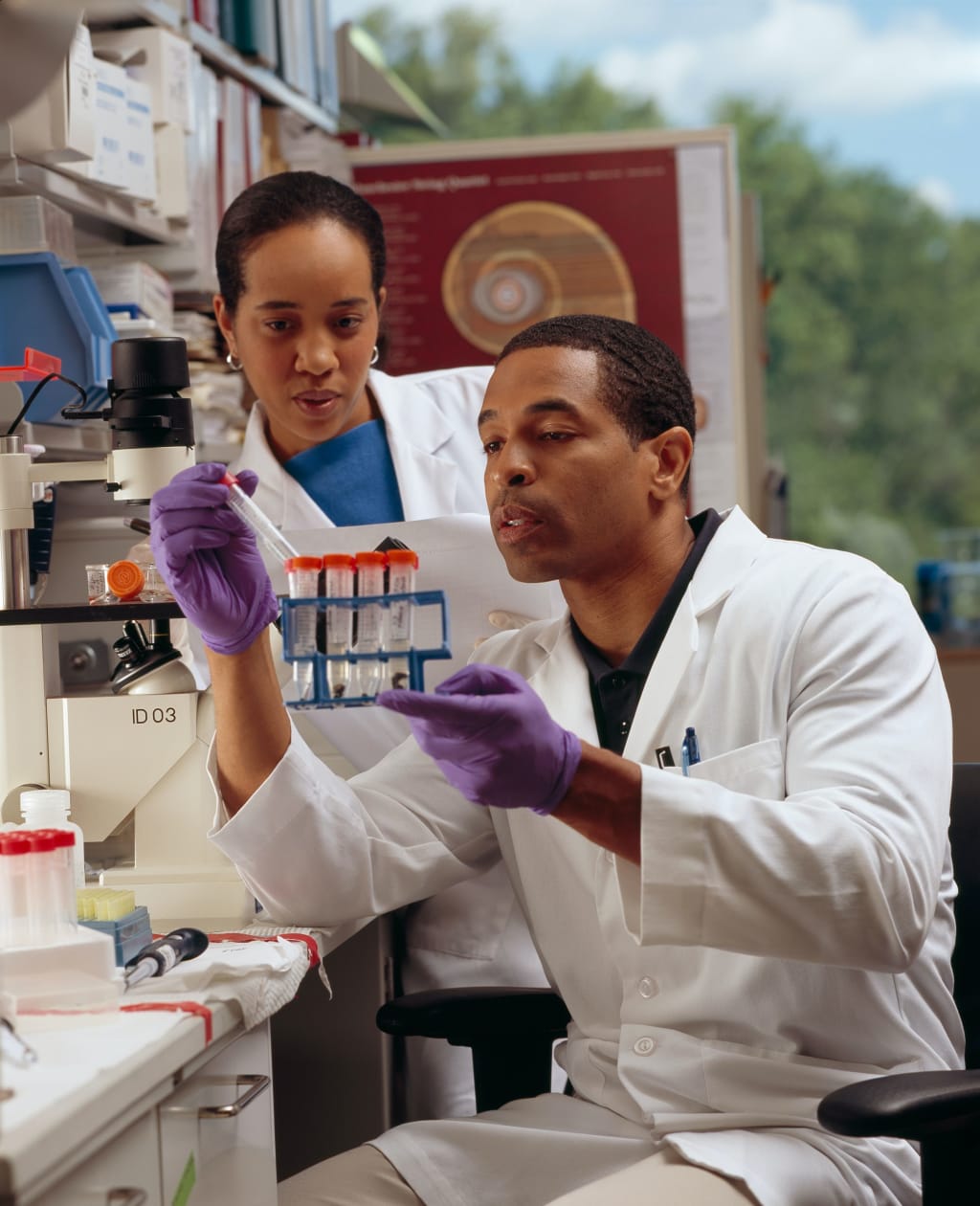You Are What You Make Out of It — Your Doctor’s Advise
It’s not uncommon for people to put off going to the doctor, either because they don’t value preventative care or because they’re afraid of what they might hear.

Some people get used to feeling less than stellar, attributing it to inevitable decline with age or to the normal wear and tear of daily life. Taking good care of yourself can make you feel fantastic and add years to your life.
If you commit to getting annual exams, you can avoid a lot of potentially serious health problems. Seeing a doctor often can help detect minor health issues before they worsen.
Some checks are rather universal, so both sexes should get them. Some sexually transmitted illnesses have been related to cancer, so anybody who engages in sexual activity should get tested for them.
“Milestone tests” are a special type of evaluation. There are recommended times for taking these examinations that are outlined in the guidelines. Preventable diseases are typically detected at this stage.
Both sexes will take many of the same tests, but there will be some variations. When a woman reaches her twenties, she should get her blood pressure monitored every two years to ensure it remains within a healthy range.
If it’s close, you should have it checked once a year. High blood pressure, defined as a reading of 140 over 90, requires medical attention. Because diabetes can manifest itself in a variety of ways, high blood pressure is one of the reasons doctors start monitoring it at a young age.
Women in their twenties should also get a baseline cholesterol test and a diabetes test. A mammogram isn’t necessary unless a lump is felt in the breast tissue, however self-exams and doctor exams are both recommended for all women.
Even if a woman is not sexually active, she should get a pap smear and a pelvic exam around this time. All necessary vaccines should also be administered at this time.
Even though it is suggested that a woman get two physicals per year while in her twenties, few women actually do so. At a minimum, once a year should be set aside for this purpose.
Testing for thyroid and skin cancer should be added to a woman’s routine health checkups when she reaches her thirties. Thyroid problems, moles, and other new growths warrant an earlier visit.
When a woman reaches the age of 40, she should get a mammography regardless of whether or not there is a history of breast cancer in her family. In addition to a pap smear, an HPV test, and any other STD or other medical tests that may be required, a breast exam performed by a doctor should be done in the office.
When a woman reaches the age of 50, she should have had her thyroid hormone tested, her rectal examined, her blood pressure checked, her cholesterol tested, and her colonoscopy performed.
After the age of 60, a bone density scan should be included to your schedule of routine milestone tests to ensure optimal health. After menopause, hormones continue to be a problem and must be closely monitored.
Physicals, screenings for skin cancer, high blood pressure, high cholesterol, diabetes, and sexually transmitted diseases are all recommended for men between the ages of 30 and 50, just like they are for women. A prostate exam is also recommended for men after they reach the age of 50.
At age 47wQbNPTDJp9hMYdvogK2hAUiHsGeiybwaWe36bwtRQ3UTpYV7YuZ8FV5j9nauFCWwcjM6dTzpL5s2N79Rp5unwdMvc8ZKU suspects that there is rectal bleeding that isn’t obvious, he or she may order a fecal blood test.
Care for Your Teeth
Indicators of systemic illness include the presence of some mouth illnesses. If you have diabetes, your dentist will be able to identify with a simple mouth exam. The first signs of thrush, he can detect them as well.
Having frequent dental checkups is crucial for this reason. You should get your teeth cleaned and checked every six months. Your dentist can check for gum disease and other dangerous conditions like oral cancer.
You should see your dentist more frequently than once every six months if you have diabetes or an immune-compromising disease.
You should change your toothbrush at least once every three months, and more frequently if you’ve recently been sick, to prevent introducing harmful germs to your mouth and keeping it there.
Your toothbrush should never be kept in a sealed container or anywhere else where germs can multiply. It’s important to give your toothbrush a chance to dry up in between uses.
Having a life devoid of physical discomfort and a sense of inner beauty is essential (or handsome). Get your teeth professionally whitened, and avoid things like coffee that can stain them (or at least avoid letting them rest on your teeth for extended periods of time without brushing).
Eye Care
Blindness can occur at any age due to a wide variety of disorders. If these conditions are diagnosed and treated in time, vision loss can be prevented or its severity lessened.
Present vision issues, such as near or farsightedness, necessitate routine eye examinations. If you’re in your twenties and have no symptoms, you should get an eye exam every 24 months.
Some issues are strong warning signs that something more significant is wrong. Seeing spots or flashing lights in your field of vision? That calls for an emergency visit to the ophthalmologist.
High blood pressure can manifest itself visually as floaters in the eyes. Diabetic indicators include these floaters. Make an appointment with your doctor right away to have them rule out any potentially life-threatening conditions.
Once you reach your forties, annual eye exams become mandatory. Getting your eyes evaluated is important not just for identifying and fixing existing issues, but also for preventing future ones.
Treatment for eye diseases such cataracts, glaucoma, and age-related macular degeneration is more successful the sooner it is started. Be more concerned about waiting too long for a diagnosis than about receiving one.
Always wear goggles or other eye protection to avoid harm to your eyes. When necessary, goggles should be worn. Wearing sunglasses can help shield your eyes from the harmful rays of the sun, whether it’s the scorching rays of summer or the reflective rays off of snow. Sunlight intolerance may indicate injury.
Regarding Internal Medicine
It’s possible to have an internal issue and be completely unaware of it at times. That’s why it’s important to be checked out if something doesn’t feel right. There should be some investigation into persistent pain or other symptoms.
Digestive, organ, and gland disorders are the focus of internal medicine. In order to have a comprehensive physical, you can see an internist.
However, some internists choose to focus on a subspecialty or multiple subspecialties within internal medicine. To give just one example, cardiology is a branch of internal medicine.
In addition, you have:
• Endocrinology
• Geriatrics
• Gastroenterology
• Hematology
• Rheumatology
• Nephrology
• Oncology
• Pulmonology
• Immunology.
Internal medicine specialists are the ones to see for conditions like arthritis. A rheumatologist is a specialist in treating musculoskeletal conditions like arthritis. For example, a gastroenterologist might be consulted for intestinal issues, an endocrinologist for problems elsewhere in the body, and so on.
Currently Emerging in Health
The health benefits of tomatoes extend to both sexes. A woman’s risk of developing cancer increases with age. A woman’s risk of acquiring breast cancer increases after menopause.
Tomatoes can raise adiponectin hormones, and a new study found that doing so can reduce the risk of breast cancer in postmenopausal women who eat meals high in tomatoes or tomato-rich foods.
New research also indicates that eating lots of tomatoes can reduce your risk of stroke. Consuming a lot of tomatoes and tomato derivatives may help reduce the likelihood of developing prostate cancer in males.
For people who currently suffer from cancer, there is a lot of hopeful information available. Researchers have identified a method of treating blood malignancies that is less harsh on the body than chemotherapy.
These drugs, known as B-cell receptor pathway inhibitors, are effective for treating leukemia patients because they kill cancer cells without harming any healthy ones, so alleviating one of the major sources of distress associated with chemotherapy.
Scientists are always developing more effective techniques to diagnose and treat medical conditions. It is up to you to take charge of your health by following a preventative care plan and doing what you can to fortify your body against illness.
10
About the Creator
Estalontech
Estalontech is an Indie publisher with over 400 Book titles on Amazon KDP. Being a Publisher , it is normal for us to co author and brainstorm on interesting contents for this publication which we will like to share on this platform






Comments
There are no comments for this story
Be the first to respond and start the conversation.